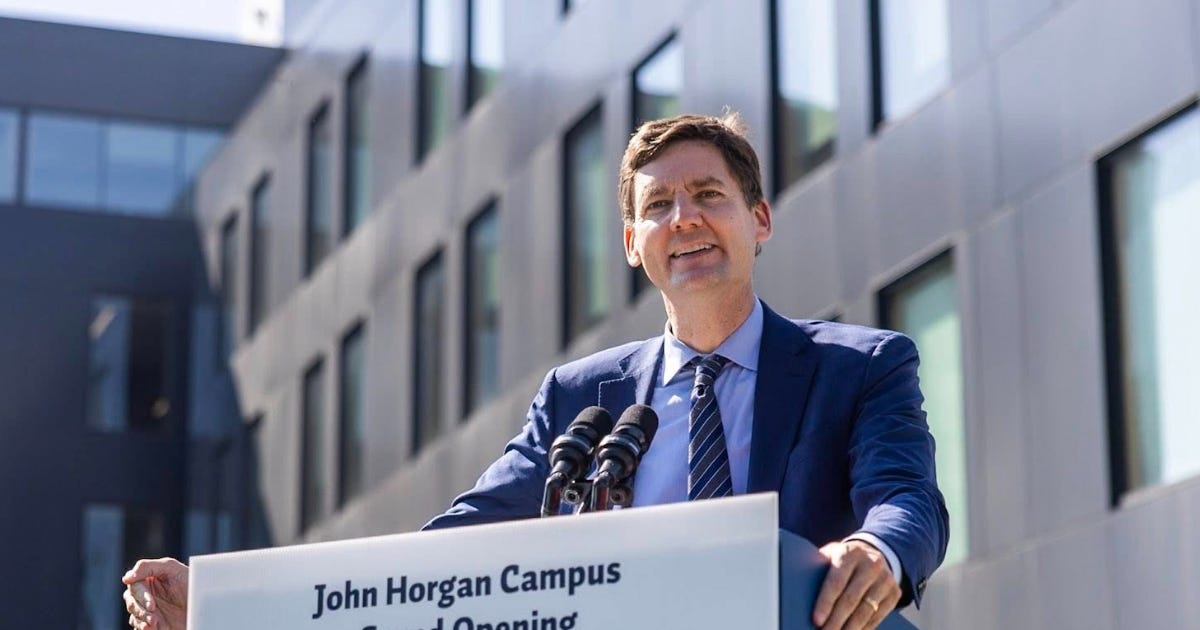B.C. premier admits, again, decriminalization of hard drugs was a mistake
In what has become a recurring event, B.C. Premier David Eby has again admitted that British Columbia’s radical drug decriminalization experiment was a “mistake.”
In what has become a recurring event, B.C. Premier David Eby has again admitted that British Columbia’s radical drug decriminalization experiment was a “mistake.”
Eby made the comments Tuesday at a news conference in Burnaby alongside Forests Minister Ravi Parmar, United Steelworkers District 3 director Scott Lunny and Unifor western regional director Gavin McGarrigle.
A reporter asked Eby to elaborate on his previous remarks.
“Premier, you’ve recently made some comments on decriminalization and your belief that it was a ‘mistake’ to bring this forward — do you have anything you wanted to expand on that? And why did you feel this was something that you needed to say publicly?” the reporter asked.
“I’ve said it a number of times,” Eby replied without hesitation.
Eby said the “toxic drug crisis” forced his government to experiment with policies such as decriminalization.
“The reality and the challenge of the toxic drug crisis has, uh, required us to take a number of approaches,” Eby said. “We want to take down those barriers so that people can access drug treatment.”
It has never been clear how decriminalizing street drugs would create a pathway to treatment.
Shortly after being sworn in as premier, one of Eby’s first initiatives was to decriminalize possession of small amounts of certain illicit narcotics under a pilot program approved by Health Canada.
That policy allowed individuals to possess up to 2.5 grams of drugs such as crack cocaine, crystal meth and fentanyl.
“We’ve got thousands of people dead, we’ve got family and friends grieving the loss of these brothers and sisters,” Eby said. “We need to drive those numbers down.”
But B.C.’s drug decriminalization experiment has not driven those numbers down.
According to the B.C. Coroners Service, more than 2,500 people died of toxic drug overdoses in 2024 — a record high since the public health emergency was declared in 2016.
Even newer data from the province’s coroner service shows that the number of deaths related to opioid overdoses in B.C. has risen to roughly five a day.
Eby has now publicly called the policy a “mistake” several times, including similar remarks earlier this month at a community luncheon organized by the Urban Development Institute.
As recently as last year, however, Eby dismissed critics who warned that decriminalization would make the crisis worse, suggesting that some of those critics were anti-science or lacked compassion.
When the B.C. United Party introduced a motion in the legislature to end drug decriminalization, Eby’s NDP caucus voted it down.
While Eby says his government has walked back the policy, the province has only recriminalized the use of hard drugs in public spaces such as playgrounds.
Decriminalization of possession and use of illicit drugs — including crack cocaine, crystal meth and fentanyl — remains in effect in private settings such as homes and supervised consumption sites.



If only the denizens of the Lower Mainland would realize that voting NDP is also a "mistake."
..David Eby has again admitted that British Columbia’s radical drug decriminalization experiment was a “mistake.”
...so we're gonna give it another shot...f#@kin' traitorous waste of skin..